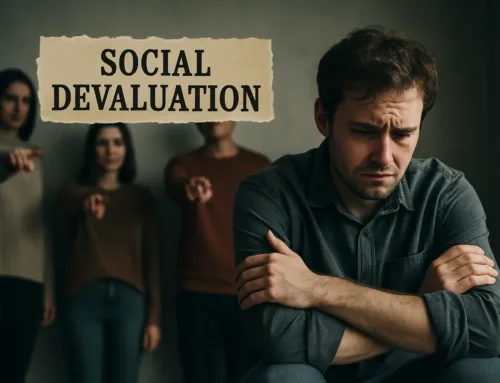
What Support Options Are Available for Adults Living Independently With a Disability?
Living independently can mean different things to different people. For some, it’s about having their own space. For others, it’s about calling the shots in daily life, deciding what to eat, when to rest, and how to spend their time. But for many adults living with a disability, living independently doesn’t mean going it alone, it means having the right support in place, so they can do life their way.
In Adelaide, there’s more choice than ever when it comes to disability support services. And that’s a good thing, but it can also be a bit overwhelming. If you’re trying to figure out what’s available, or helping a loved one make sense of their options, here’s a breakdown of what support looks like in real, everyday terms.
You Don’t Have to Do Everything Yourself
Let’s start with something important: asking for help doesn’t take away your independence. In fact, it can be the very thing that allows you to live on your own terms.
Support can be as simple as a few hours a week from a support worker, or as involved as daily help with cooking, transport or personal care. What matters is that it works for you, and that it gives you more control over how you live.
Help Around the House (Big or Small)
One of the most common support services is help at home. This might mean someone comes in a few times a week to help with laundry, vacuuming, preparing meals, or even just checking in. If you need help every day, getting dressed, managing medications, or getting ready for work, that’s available too.
Plenty of disability care providers in Adelaide offer these services. Some people also get help with tasks like paying bills, organising appointments, or managing their schedule.
You decide what you want support with, and what you want to handle yourself.
Support for Getting Out and About
Being independent doesn’t just mean staying on top of things at home. It also means being part of your community. Whether that’s going to the shops, catching up with friends, or joining a social group, it’s important to stay connected.
If public transport isn’t an option, or if leaving the house on your own is tricky, you can get help with transport or have someone go with you to appointments or outings. In Adelaide, lots of organisations offer social support programs that involve group activities, hobbies, or skill-building, from art classes to bowling nights.
If you’re someone who doesn’t like feeling cooped up, this kind of support can make a big difference to your routine.
Supported Independent Living (SIL)
Supported Independent Living (SIL) is a specific kind of help for people who want to live on their own, usually in shared housing, but need some support each day to make that possible.
You might share a home with one or two others and get help with things like cooking or managing routines. SIL is usually funded through the NDIS and is available in different parts of Adelaide. Some people need support all day. Others just need a hand now and then. The idea is to give you space and freedom, while making sure someone is there when you need them.
Making Your Home Work for You
For many people, it’s not just about having a home, it’s about making sure that home is practical, safe, and set up to support your independence.
That might mean installing grab rails, ramps, or easy-access showers. Or it could involve getting technology that makes everyday tasks easier, like automated lights, voice-controlled devices, or kitchen modifications.
You can work with an occupational therapist to figure out what changes would make your space better suited to your needs. If you’re part of the NDIS, these changes are often funded under home modifications or assistive technology.
Learning New Skills (At Your Own Pace)
If you’re just starting to live independently, or you want to build more confidence in certain areas, there are services in Adelaide focused on helping you learn. This might be learning how to cook simple meals, budget your weekly spending, take public transport, or build up your fitness.
You can also find programs that help with work readiness or digital skills, like how to use apps, write emails, or stay safe online. A support worker or mentor can work with you one-on-one, or you can join group programs to build skills and meet new people.
Support Coordinators: The People Who Help It All Make Sense
If all of this sounds like a lot to organise, you’re right, it can be. That’s why having a support coordinator can be so helpful.
Support coordinators help you figure out what you’re entitled to, which providers are best for you, and how to get the most out of your NDIS plan. Think of them like a project manager, but for your care and lifestyle.
In Adelaide, many disability care providers offer support coordination as part of their services. You don’t have to figure everything out alone.
When Something Goes Wrong, Help Is There Too
Living independently means sometimes you’ll have days where things don’t go to plan. Maybe you’re sick. Maybe your usual support worker isn’t available. Maybe you just need help, urgently.
Most disability care services in Adelaide offer after-hours or emergency support, whether it’s overnight assistance, phone support, or in-home care. Knowing that backup is available gives you peace of mind, especially if you’re living alone.
And Let’s Not Forget Mental Health
Being independent doesn’t mean you won’t sometimes feel lonely, overwhelmed, or anxious. Mental health support is just as important as physical or practical care.
Many providers in Adelaide offer access to counselling, peer support groups, or psychologists who understand disability-related challenges. Sometimes talking to someone who gets it, who’s not family or a friend, is exactly what helps you move forward.
Final Thought
Living independently with a disability doesn’t mean doing everything on your own. It means making your own choices, and having the right support around you to make those choices work.
In Adelaide, disability care services are built around that idea. Whether you need help for a few hours a week or full-time assistance, the support is there. You just need to know what to ask for, and who can help you make it happen.
And if you’re still figuring it out, that’s okay too. Start with a conversation. A local provider, a support coordinator, or a friend who’s been through the system can point you in the right direction.
Because independence doesn’t mean “no help.” It means your life, your way, with the right people backing you up.





